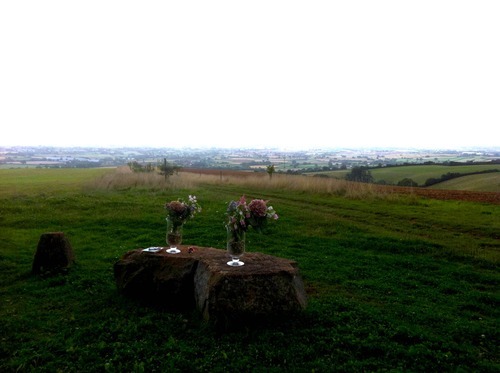
Yesterday, I went to a fantastic wedding. It was truly wonderful for a number of personal reasons, given that it was my brother's wedding (!) – but it was also, for me, a great example of how an old-fashioned institution like marriage can be brought into the 21st century, and celebrated without gender-bias.
There are lots of aspects of more traditional weddings within which feminism dies a little death; the very old-style vows whereupon a woman vows to “love, cherish and obey” her new husband, leaving the man to simply love and cherish her, for one. The idea that a woman is “given away” by her father, for another.
But this wedding was different, which, I suspect, made a lot of us very happy. A few weeks ago I read this great piece by Laura Bates on how to have a feminist wedding, and although I've no idea whether yesterday's bride and groom had read it too, there were a number of common ideas.
There were no vows to obey anyone; instead, the two of them read out customised vows. The celebrant, (the person who lead the ceremony) was the bride's godmother, which leant a lovely personal touch to the event. There was no church aisle for her to walk down, but instead the ceremony was held at a stone circle on the top of a hill with a truly gorgeous view over the Somerset countryside, through which the bride walked together with Lisa, who has been an enormous influence in her life. Incidentally, they arrived in a 4x4, while we guests had a beautifully picturesque ride up the hill while sitting on bales of hay on a trailer attached to a tractor. So much for the stereotype of the delicate and fragile bride!
In keeping with the theme, the readings were (hopefully!) slightly unusual – first, a section from the Epic of Gilgamesh (Column III) by Harrie's brother, Jack, and then I read a poem by a feminist author I admire hugely, Maya Angelou – Touched by an Angel.
There was no bouquet-throwing, which Laura Bates aptly describes with
“Come on, girls, scrabble desperately for this fateful bundle of foliage because it's the only chance you have to influence the future of your own relationship. Followed by pitying nudges for the bloke whose partner catches the flowers, as he's clearly now irrevocably caught in the harpy's iron grasp.”
… enough said.
There was a lovely and hilarious speech from the mother of the bride, as well as the two best men; and I think the biggest and best nod to gender equality in the wedding, was within my brother's speech. Traditionally, the groom's speech often starts with “On behalf of my wife and I, we'd like to thank you all...” – this one, however, came first with a disclaimer, that his new wife had taken the active decision not to do a speech herself, and that she had asked him to speak on behalf of the two of them. As he rightly identified, with the number of strong women in the room, any attempts at talking “on behalf of” his lovely new wife without prior consent would not have been taken kindly!
And finally, of course – the names. Harrie has decided to keep her own name for now, and this article sums up pretty aptly how I feel about women changing their name – ie. that there's a lot in a name, and changing that name is definitely not something that should be taken for granted simply because a woman is getting married. That said, I have many strong feminist friends who have, upon reflection, decided to take their husband's name; it has been their own, individual decisions to do so, and definitely not because of traditional societal pressure, though.
Next week, we're having a Bangladeshi-style wedding reception for the two of them. I wonder how possible it will be to maintain an equal and non-gender biased celebration within the framework of Bangladeshi traditions and customs; we'll try our best!